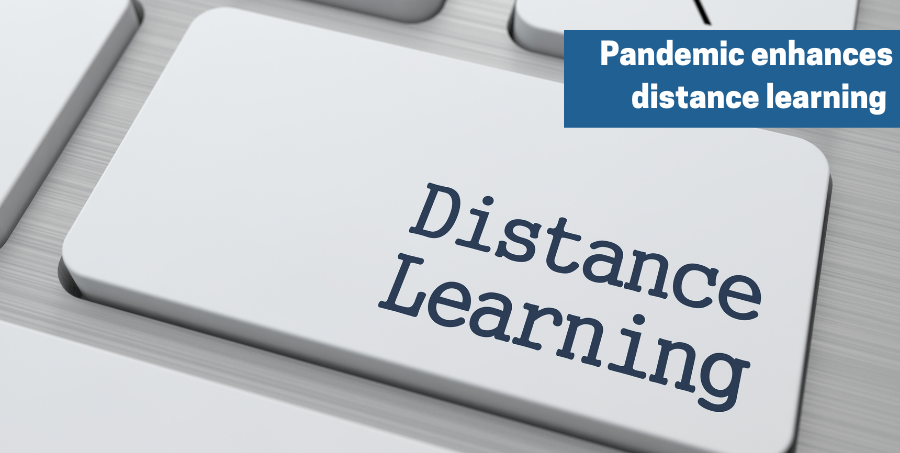How has social distancing transformed distance learning?

There are occasions in which a horrible crisis can yield hitherto unexpected and lasting benefits - and it seems as though the COVID-19 pandemic has already begun to do so by forcing an innovative rethink about the place of online distance learning in educational establishments.
The worldwide health crisis has forced schools, colleges and universities in the UK and elsewhere to close their doors and suspend collective learning on campus. But several academics and tech innovators who have been pioneering the sudden shift to online teaching and learning for newly-housebound students are impressed with the results.
Online learning platform FutureLearn, which is owned by the Open University, has been one of the actors at the forefront of the massive move to digital that has been executed by our seats of learning in a matter of weeks. Its chief transformation officer, Kathryn Skelton, acknowledges that universities especially have "moved heaven and earth" to reach their students digitally, a fast-transition so vast in its scope that it's required a creative shift in mindset.
Delivering the occasional lecture via Zoom is one thing, but it's not going to pass muster if this is the sole format for providing a full learning experience over an extended period. Skelton says:
"Educators need to take a step back and ask not 'how can I replicate what I do in the classroom', but 'how can I redesign this learning experience to take advantage of a whole wealth of technology that can deliver a full learning experience - not just the delivery of information?'"
Academics need, she believes, to devise a detailed online education plan, replete with innovative methods of delivery such as podcasts and online articles. But she also believes that great attention has to be played to the "student engagement" factor – the mutual support of live peers has suddenly vanished for students, leaving some of them vulnerable to losing motivation and suffering time management and self-discipline problems.
A recent survey of almost 1,000 university students by the Singapore Institute of Technology (SIT), for example, found that during six weeks of remote digital learning from home, over half the respondents found that they'd allowed work to pile up due to constant procrastination and ebbing motivation.
SIT's Dr May Lim, associate professor and director of the university's Centre for Learning Environment and Assessment Development, said that the remedy lay in creative new student engagement innovations. They should include automated email notification, features in the learning management system that quickly alert tutors when students have failed to log in. That enables tutors with a student that is beginning to disengage to rally the individual's spirits with a friendly online 'nudge', catching them before they fail.
The president of the online University of the People (UoP), Shai Reshef, agrees that social engagement is critical for the success of effective online learning. He thinks that, for example, professors talking into a camera for a couple of hours just won't do for online learning. Much more interactive methods and active reach-outs are needed.
The University of Washington, for example, has had impressive results during the lockdown in sustaining student engagement in remote learning by using weekly online teaching workshops. They also have a "think-pair-share" initiative that creates virtual "breakout rooms" for students to interact via Zoom and Google doc.
One thing seems certain: remote online learning has moved closer to the centre of university education methods and it looks set to stay.

